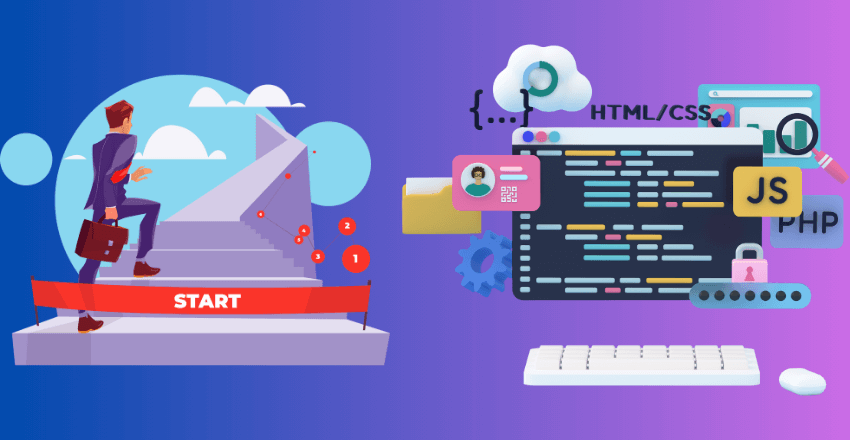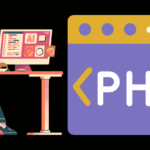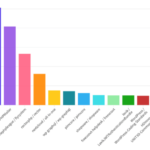
If you are someone who enjoys writing code and has an eye for detail, then a career as a PHP software engineer may be perfect for you. As a PHP software engineer, you can design, develop, and maintain web-based applications and systems using PHP programming language. The demand for this profession is growing rapidly, making it an exciting time to join this field.
In this article, we will guide you through the journey of becoming a PHP software engineer. We will discuss the required education and skills, gaining experience, career progression, industry demand, and job outlook, among other topics. You will also learn about the resources and communities available to support you in your career.
So, if you are interested in becoming a PHP software engineer and pursuing a PHP software development career, then continue reading to learn more about this exciting profession.
What is a PHP Software Engineer?
If you’re interested in pursuing a career in web development, becoming a PHP software engineer could be an excellent choice. PHP, a popular scripting language, is widely used in web development and offers plenty of opportunities for professionals with the right skillset.
What does a PHP Software Engineer do?
A PHP software engineer is responsible for developing, testing, and maintaining web-based applications and systems using PHP and other relevant technologies. They work closely with other developers, designers, and stakeholders to ensure that the web applications they build are functional and meet the needs of the users.
Some of the key skills required to become a successful PHP software engineer include:
- Proficiency in PHP programming and related technologies such as HTML, CSS, and JavaScript
- Database management and SQL skills, especially with MySQL or another relational database management system
- Familiarity with development frameworks such as Laravel, CodeIgniter, or Yii
- Experience with version control tools like Git or SVN
- Knowledge of web development practices and principles, including responsive design, cross-browser compatibility, and accessibility
Types of Projects
PHP software engineers work on a variety of web-based projects, ranging from simple websites to complex enterprise-level applications and e-commerce platforms. Some of the projects that PHP software engineers commonly work on include:
- Content management systems (CMS) such as WordPress, Joomla, or Drupal
- E-commerce platforms such as Magento, Shopify, or WooCommerce
- Web-based applications such as CRM systems, project management tools, or online marketplaces
- Mobile applications and APIs that interact with web-based systems
PHP software engineers work in a fast-paced and constantly evolving environment, where they need to stay updated with the latest technologies and best practices. Continuous learning and professional development are an essential part of the job, and successful PHP software engineers are always looking for ways to enhance their skills and knowledge.
Becoming a PHP Software Engineer: Education and Skills
If you’re interested in becoming a PHP software engineer, there are certain educational backgrounds and technical skills that are essential for success. While there is no one-size-fits-all approach, there are certain educational paths and skills that can increase your chances of success in this field.
Education
Most PHP software engineers have a degree in computer science, software engineering, or a related field. A bachelor’s degree can provide a solid foundation for learning programming languages, algorithms, and design patterns. Some employers may also prefer candidates with a master’s degree or professional certifications.
While a formal education can be valuable, it’s also important to stay up-to-date with the latest technologies and trends in the field. This can include attending conferences, participating in online forums, or taking self-paced courses.
Technical Skills
PHP software engineers must have a strong understanding of PHP programming language, as well as database management and web development. Knowledge of HTML, CSS, and JavaScript is also important. Experience with frameworks such as Laravel, CodeIgniter, and Symfony can be valuable.
Soft skills are also important, including communication, problem-solving, and teamwork. While technical skills are essential, the ability to work well with others and communicate effectively can set a candidate apart from the competition.
Becoming a PHP software engineer takes time and effort, but it can be a rewarding career with many opportunities for growth and development.
Becoming a PHP Software Engineer: Journey of a PHP Software Developer Job
As with any career, gaining experience is a vital part of becoming a successful PHP software engineer. Internships and entry-level positions provide opportunities to develop skills, build a portfolio, and make professional connections.
When starting out, it may be challenging to find these opportunities, but there are resources available. Check online job boards and company websites, attend job fairs, and connect with recruiters on LinkedIn.
Internships
Internships are an excellent way to gain practical experience in the field and learn from experienced professionals. As an intern, you’ll have the opportunity to work on real-world projects and contribute to a team’s success.
When applying for internships, highlight your skills and enthusiasm for PHP development. Be sure to ask questions during the interview process to show your interest in the company’s work and culture.
Entry-Level Positions
Entry-level positions allow new PHP software engineers to gain experience while working on projects that may not be as complex as those assigned to senior engineers. However, this is a crucial stage for learning the ins and outs of the industry and building professional relationships.
When starting as an entry-level software engineer, be open to learning and seeking guidance from colleagues. Ask specific questions about projects and seek feedback to improve your skills.
Overall, gaining experience takes time and effort, but it’s essential to becoming a successful PHP software engineer. By taking advantage of internships and entry-level positions, you’ll be well on your way to building a successful career in PHP software development.
Advancing in the Field: Mid-Level and Senior Positions
As a PHP software engineer progresses in their journey, they can advance to mid-level and senior positions by gaining experience and expertise. Mid-level positions typically involve supervising junior developers and contributing to project planning and execution. Senior positions may involve leading development teams, overseeing architecture and design decisions, and working closely with stakeholders to ensure the success of projects.
A PHP software developer job at this level requires a broad range of skills, including strong leadership and communication abilities, project management experience, and a deep understanding of PHP software development. Mid-level and senior professionals can also expand their knowledge by leaning into areas like system architecture and software best practices.
This stage of the journey can be particularly rewarding in terms of compensation and responsibilities. Mid-level PHP software engineers can expect to earn a median salary of around $90,000 per year, while senior engineers can earn up to $130,000 or more. It is also an exciting time for those who want to take on more challenging and impactful projects that make a real difference.
Specializations in PHP Software Engineering
PHP software engineering is a broad field with several opportunities for specialization that can enhance career prospects. Here are some of the most popular specializations in the PHP software development career:
| Specialization | Description |
|---|---|
| E-commerce development | This specialization focuses on developing web-based applications and online stores that facilitate online transactions. It involves working with e-commerce platforms, payment gateways, and database management systems. |
| Content management systems | This specialization involves developing and maintaining content management systems designed to create, manage, and publish digital content, such as websites, blogs, and forums. It requires expertise in PHP frameworks like WordPress and Drupal. |
| Mobile application development | This specialization involves developing mobile applications for iOS and Android platforms using PHP technologies like React Native, PhoneGap, and Ionic. It requires proficiency in front-end development and API integration. |
Specializing in a specific area of PHP software engineering can help professionals stand out in a crowded job market and increase their earning potential. It also provides opportunities to work on exciting projects and collaborate with like-minded individuals.
Industry Demand and Job Outlook
For anyone considering a career in PHP software development, the job outlook is promising. With the rise of web-based applications, there is a growing demand for skilled PHP software engineers. In fact, according to the Bureau of Labor Statistics, employment of software developers is projected to grow 22% from 2019 to 2029, much faster than the average for all occupations.
In addition to the traditional office-based employment, there is also an increasing trend for remote work and freelancing opportunities in this field, which provides an additional level of flexibility and work-life balance.
How to Excel as a PHP Software Engineer
If you want to succeed in your PHP software development career, there are several steps you can take to achieve excellence. Here are some tips to help you on your journey:
Continuous Learning
Software development is an ever-changing field, and it’s essential to stay updated with the latest technologies and programming languages. Engage in ongoing learning by attending webinars, workshops, and industry events. Enroll in courses or certification programs to gain new knowledge and skills.
Participate in Open-Source Projects
Open-source projects are a great way to hone your skills and build your portfolio. Collaborating with other developers will help you learn new techniques and best practices, and it’s an excellent opportunity to give back to the community. Participating in open-source projects can also help you gain visibility and recognition in the software development industry.
Network and Build Your Reputation
Networking is vital in any field, and software development is no exception. Attend industry events and conferences to connect with peers and leaders in the field. Join online communities and engage in discussions to build relationships and contribute to the PHP community. Building a professional reputation takes time and effort, but it can lead to increased opportunities and recognition.
Stay Up-to-Date with Industry Trends
Keep up with the latest trends and developments in PHP software development by following industry news and staying connected with your peers. Follow influential developers and thought leaders on social media and subscribe to relevant blogs and newsletters. Staying informed about new tools and technologies will help you stay competitive and informed.
Develop Soft Skills
While technical skills are essential, soft skills like communication and problem-solving abilities are equally crucial. Develop your ability to collaborate effectively with team members and clients, and learn to handle conflicts constructively. These skills will help you succeed in your career and advance to leadership positions.
Training and Certification Programs
If you have decided to pursue a career in PHP software development, it is essential to invest in training and certification programs to enhance your skills and stay up-to-date with the latest trends. Formal education in computer science or a related field is helpful, but there are also several online resources available for self-learning.
One of the most renowned certification programs for PHP software engineers is Zend PHP certification, which tests your proficiency in PHP programming and web development. Other programs include PHP Development certification from the International Webmasters Association and PHP certification from Microsoft.
Several training programs also offer courses and workshops covering various aspects of PHP software development, such as e-commerce development, content management systems, and mobile application development. These programs can provide hands-on experience and allow you to work on real-world projects, adding value to your portfolio.
Salary and Compensation
As a PHP software engineer, salary and compensation packages can vary based on a range of factors including location, experience, and company size. According to data from Glassdoor, the average salary for a PHP developer in the United States is around $85,000 per year, with some professionals earning as much as $120,000.
Additional factors that may impact salary include specialized skills, project complexity, and job title. For example, a senior PHP software engineer may earn a higher salary than an entry-level developer.
It’s worth noting that compensation packages for PHP software engineers often include additional perks such as health insurance, retirement plans, bonuses, and the option to work remotely. Keep in mind that while salary is an important consideration, it’s not the only factor that should guide your career decisions.
Ultimately, the potential for career growth, job satisfaction, and opportunities to develop new skills should also be taken into account when considering a career in PHP software development. By staying up-to-date with the latest technologies and honing your skills, you can maximize your earning potential and achieve success in this rewarding field.
Resources and Communities for PHP Software Engineers
As a PHP software engineer, it is essential to stay updated with the latest technologies and industry trends. Being part of communities and groups can help in expanding knowledge and finding resources. Below are some of the resources and communities for PHP software engineers:
- Stack Overflow: A popular Q&A community of developers that offer solutions to coding challenges
- PHP.net: The official website of PHP, where one can find the latest updates and official documentation
- Github: A platform for developers where they can find and contribute to open-source PHP projects
- Reddit: A social platform where PHP developers share information, tips, and news
Attending conferences and events can also be an excellent way of staying updated. Some of the popular PHP conferences are:
| Conference | Location |
|---|---|
| php[tek] | Chicago, USA |
| ZendCon | Online |
| PHP UK Conference | London, UK |
Joining professional associations and organizations can also be a great way to network and learn from peers in the industry. Some of the associations for PHP software engineers are:
- PHP User Group: A community of PHP enthusiasts with local chapters worldwide
- PHP-FIG: A group of professionals that focus on the standardization of PHP components
- International PHP Conference: A global organization that organizes PHP-related conferences
By being part of these resources and communities, PHP software engineers can grow their knowledge, find solutions, and connect with other professionals in the industry.
Conclusion
As outlined in this article, pursuing a career as a PHP software engineer can be a rewarding and promising path. With a high demand for professionals in this field and ample opportunities for career growth, individuals with a passion for programming and web development can thrive as PHP software engineers.
From the education and skills required to the importance of gaining practical experience, this article has provided a comprehensive guide to embarking on a successful journey as a PHP software engineer. It has also highlighted the value of specializing, continuously learning, and staying updated with industry trends and news.
With access to resources and communities for support and networking, PHP software engineers can enhance their skills and build a professional reputation in the field. Additionally, training and certification programs can boost their career prospects and salary potential.
If you are interested in pursuing a career in PHP software development, take the first step and explore opportunities with Hire PHP Developer. With dedication and hard work, you can excel as a PHP software engineer and enjoy a rewarding career in this dynamic and exciting field.
FAQs
1. What does a PHP Software Engineer do?
PHP Software Engineer: A PHP Software Engineer designs, develops, and maintains web applications using the PHP programming language. They ensure efficient and secure code, optimize performance, and integrate various databases and services.
2. How does a PHP Software Engineer differ from a regular PHP Developer?
Distinguishing Factors: While both roles involve PHP development, a PHP Software Engineer typically handles more complex tasks, designs software architecture, and often leads development teams. They also delve deeper into software engineering principles.
3. What skills should a PHP Software Engineer possess?
Essential Skills: Beyond mastery in PHP, they should be proficient in various PHP frameworks, understand software design patterns, possess database expertise, and have strong problem-solving abilities. Knowledge of front-end technologies is a plus.
4. How do I hire the right PHP Software Engineer for my project?
Hiring Process: Start by defining your project’s requirements. Then, interview candidates to assess their technical knowledge, problem-solving skills, and cultural fit. Check their portfolio and consider conducting a coding test.
5. Can a PHP Software Engineer work remotely?
Remote Work: Absolutely! Many PHP Software Engineers work remotely, delivering high-quality code and collaborating effectively using tools like Git, Slack, and video conferencing platforms. Ensure clear communication and regular updates for best results.
Michael is an accomplished technical author renowned for his expertise in scientific computer science. With a distinguished career as a development manager at Yahoo, Walmart, and FedEx, he has demonstrated exceptional leadership and technical acumen in delivering successful projects.
With an unwavering interest in PHP development, Michael has been at the forefront of this powerful programming language for the past 22 years. His passion for PHP has driven him to explore its vast potential and harness its capabilities to create innovative and scalable web solutions. Michael’s expertise in PHP development encompasses various frameworks, libraries, and best practices, making him a trusted authority in the field.



![How to use Cursor AI to write PHP Code[Example]](https://hirephpdeveloper.dev/wp-content/uploads/2025/03/How-to-use-Cursor-AI-to-write-PHP-Code-1-150x150.png)



